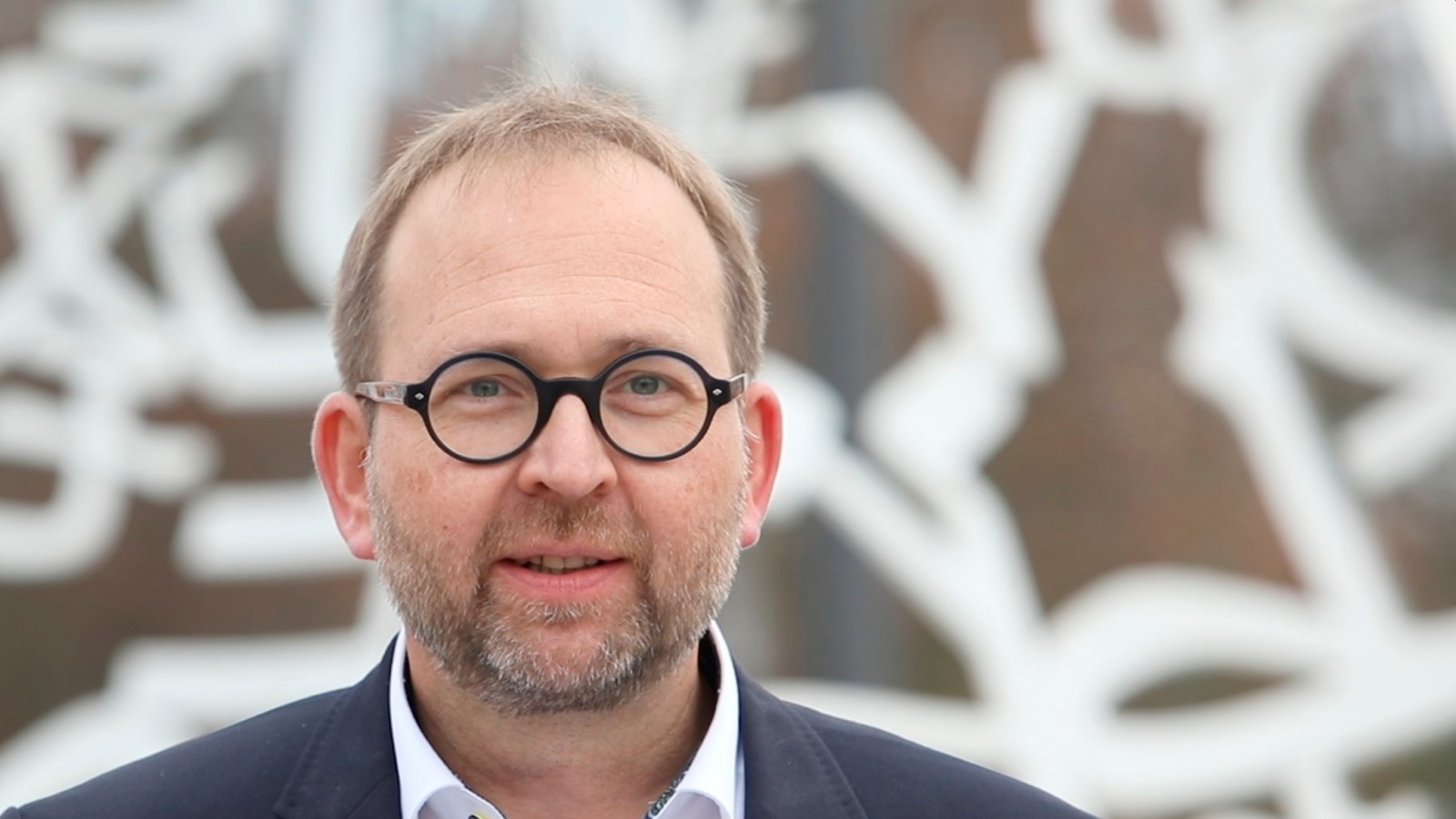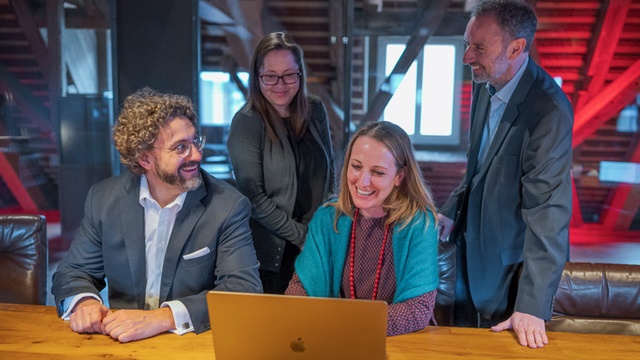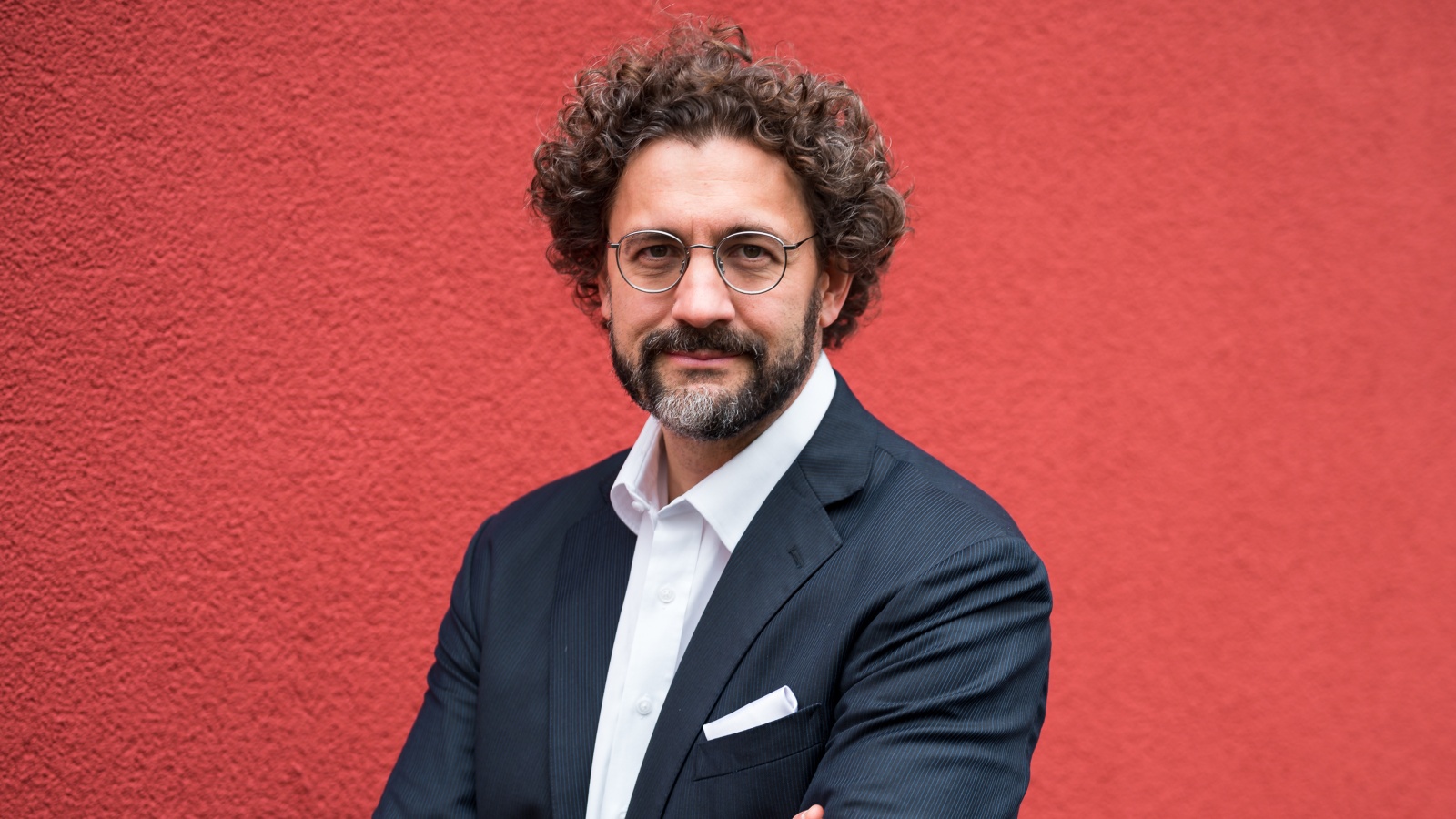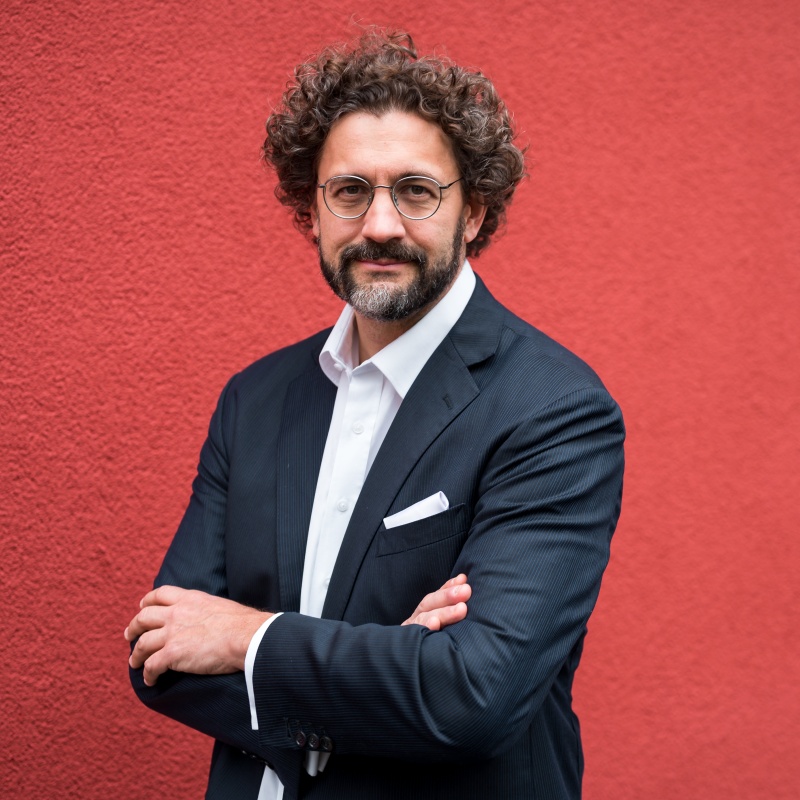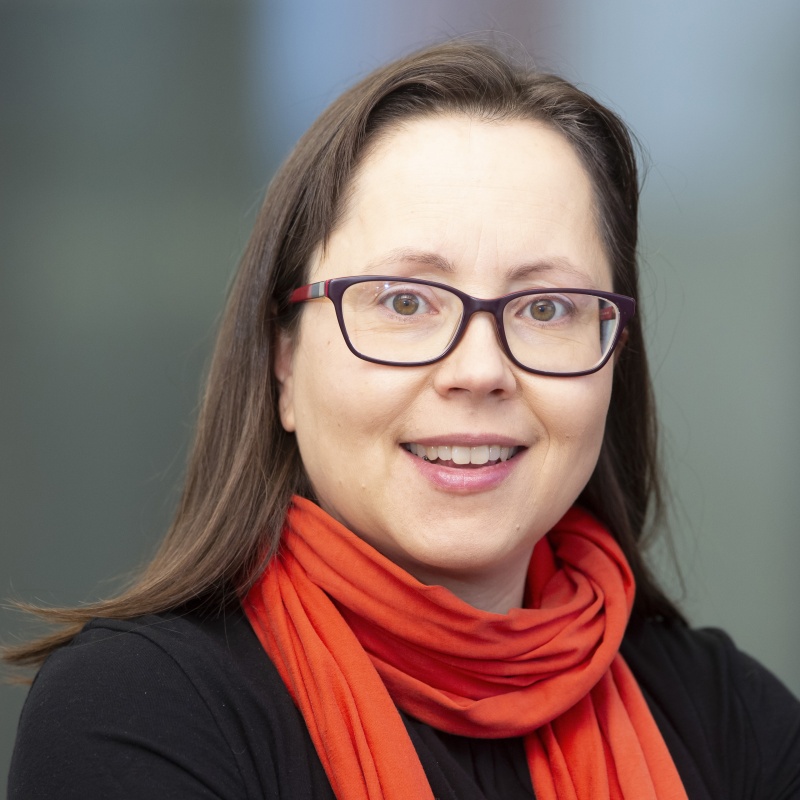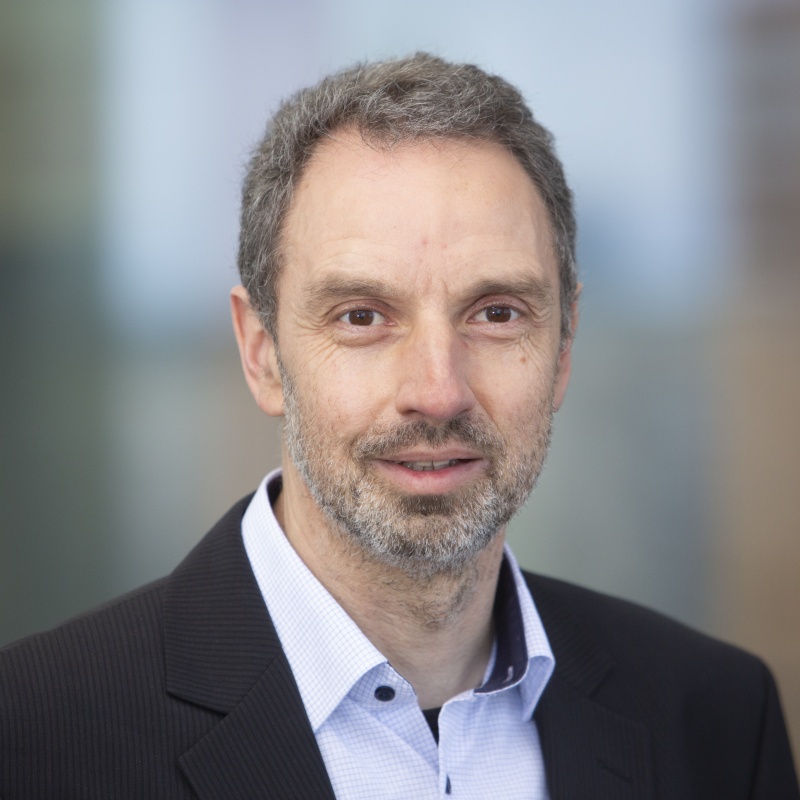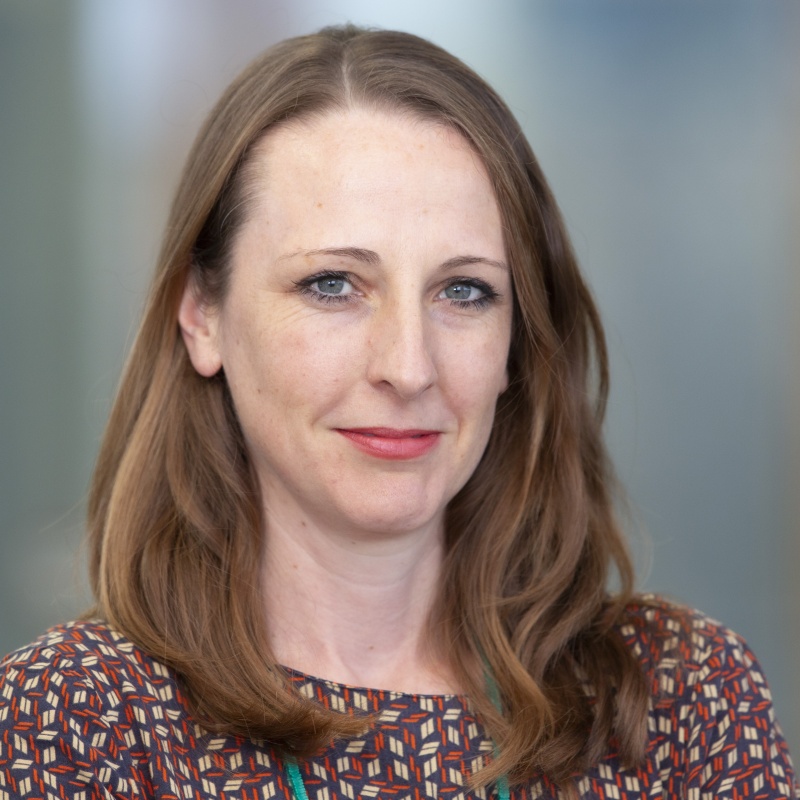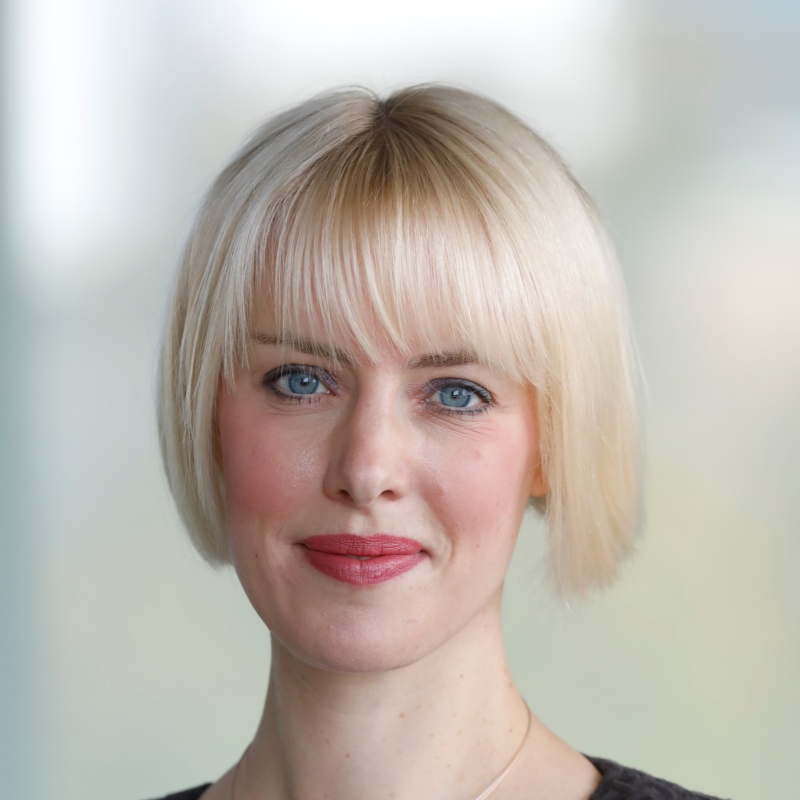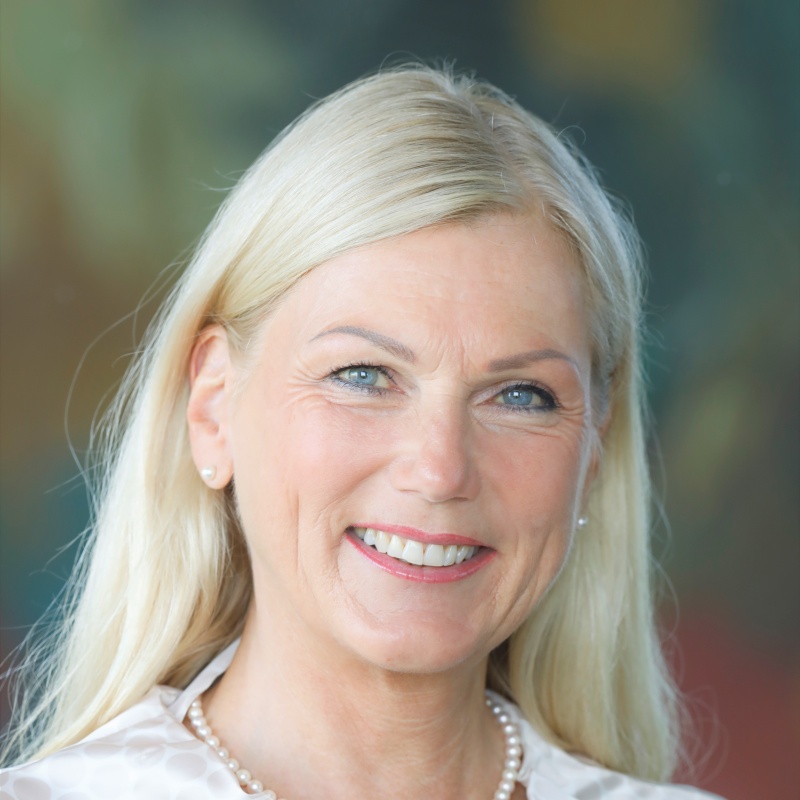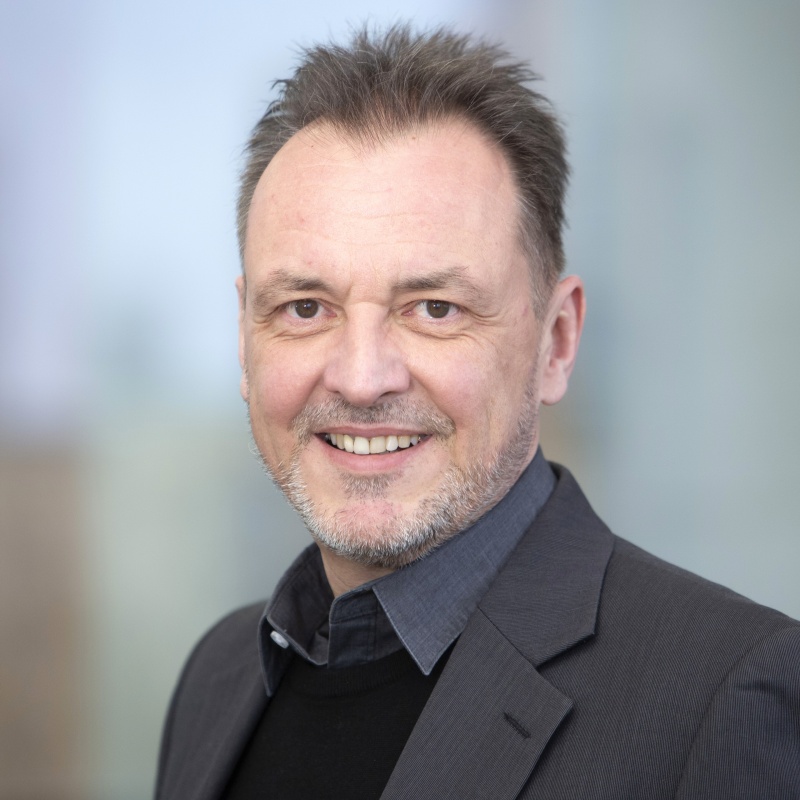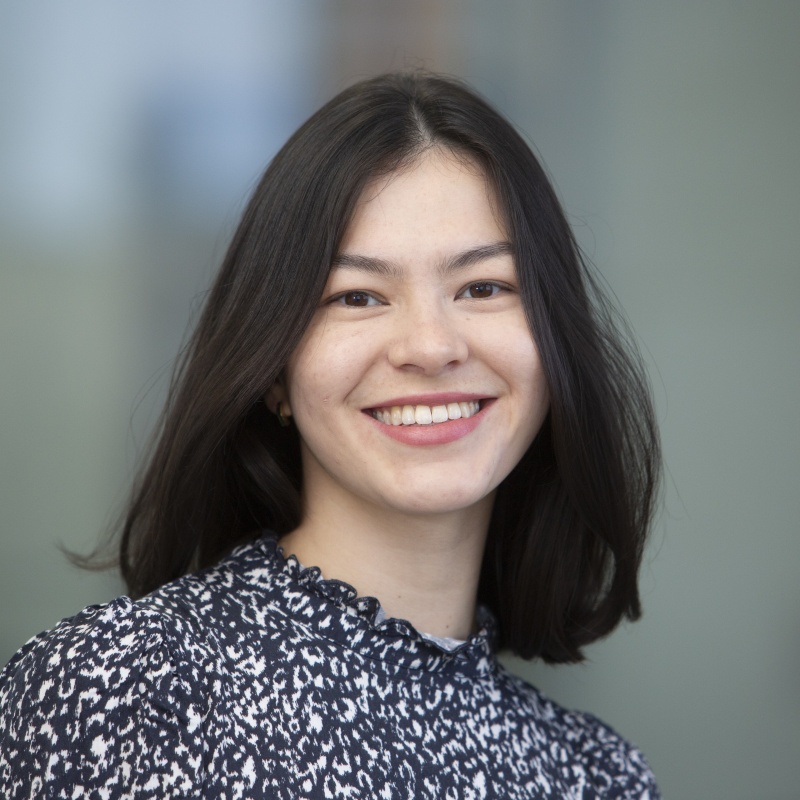
WHO WE ARE
We bring them all together: Outstanding academics across disciplines, leaders with diverse backgrounds, skilled and enthusiastic young researchers, and students seeking to shape our digital futures
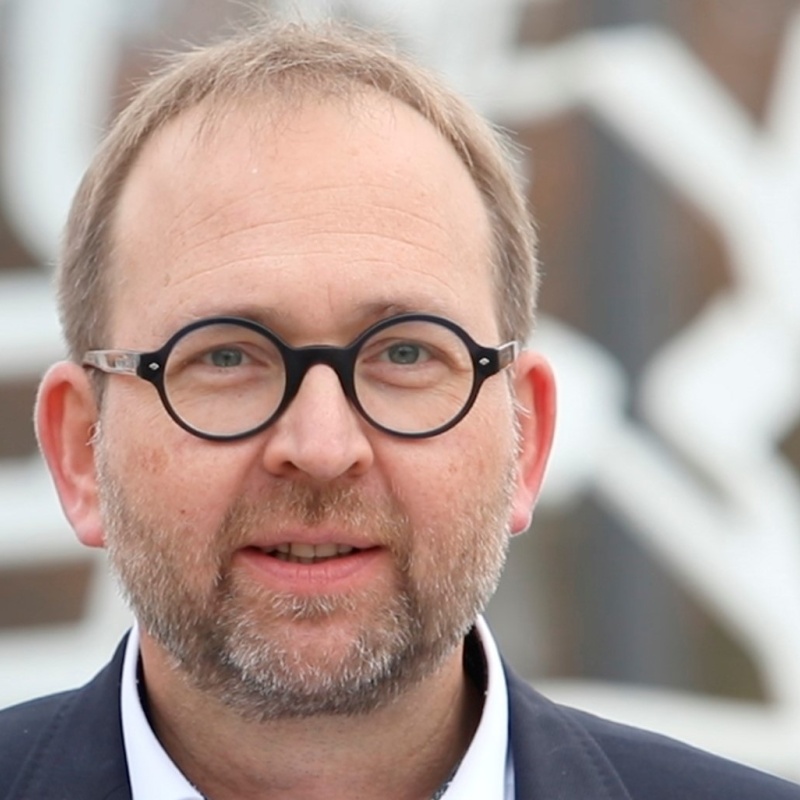
Inaugural Address of the President of Goethe University
Prof. Dr. Enrico Schleiff
We are all facing global challenges that we can only tackle through joint efforts. We are dealing with both known unknowns and unknown unknowns, in short, unpredictable complex system dynamics at different temporal and/or spatial scales that require multidisciplinary knowledge, interdisciplinary collaboration, and new transdisciplinary approaches in which we continuously test, develop, and reflect on our theories and methods in dialogue with society. Nowadays this always means that we use our formal models and advanced computational methods and techniques to describe multi-scalar phenomena, integrate theories to improve our predictions and interventions - and to do all of this in a legitmate and justifiable manner.
The Center for Critical Computational Studies, which I initiated and which was established at Goethe University in April of this year (2023), takes all of this into account. It serves as a plattform for multi-, inter-, and transdisciplinary research and method development, open to all those who are directly or indirectly involved in the exploration, development, transfer, and reflection of computational methods and techniques and their application to describe and explain complex, "critical" transformation dynamics. The importance of this research is underscored by Goethe University's establishment of the C3S as a central scientific institution equipped with at least 12 new professorships, located at a new site, which, together with internal and external PIs, will develop Critical Computational Studies into a standalone research profile that extends to teaching and education.
It goes without saying that such a center does not emerge overnight. The initial conceptual contribtuors, Juliane Engel, Martina Klausner, Thomas Betzwieser, Christoph Burchard, Matthias Kaschube, Alexander Mehler, and Ernst Stelzer, have made essential contributions by nurturing the original idea and by advancing the transdisciplinary ambitions of C3S. They have thus laid the foundation for the founding board, which is now tasked with sharpening the C3S's profile, initiating first research and education projects, but above all creating an environment for the newly appointed colleagues who we will be recruiting in the years to come. For this, I thank them very much!
Meet the Team
Founding Speaker
Prof. Dr. Christoph Burchard, LL.M. (NYU)
Christoph Burchard is the founding speaker of the C3S. He holds the chair for German, European and International Criminal Justice, Comparative Law and Legal Theory at Goethe University Frankfurt am Main. He is also adjunct faculty of LUISS University Rome (program in Law, Digital Innovation and Sustainability), and principal investigator of the Normative Orders research network. In his current research, he inter alia focuses on the normative order of computational technology in postdigital societies, including on how AI impacts (stabilizes and transforms) the very core of normativity. He has co-published on argument mining in legal texts and the use of large generative AI models in legal writing.
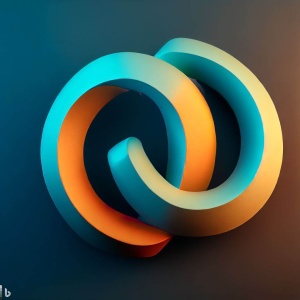
"In Critical Computational Studies, both Cs – the Critical and the Computational – meet on equal footing. We complement computational (as in: operating with software, hardware, and data) with critical (as in: reflective and pertaining to significant transformative) approaches. Both Cs may prove challenging for one another. But they do not assail, let alone dissolve each other. Both Cs come together to constructively and creativly so that we - as researchers, teachers, users and citizens - enjoy the agency to shape our (post-)digital futures.
In the Center for Critical Computational Studies, or C3S, we hence set out to interweave these two Cs without prejudice. Neither is one C pushing boldly ahead while the other stands in the way of progress. Nor is one C meant to disentchant the other and its calamities.
This openness is what makes C3S unique, and why it can inspire innovative research across and beyond disciplinary boundaries.
Today’s (post)computational realities are characterized by anthropogenic climate change, pluralism and inequalities. Computational research and solutions hence need to be trustworthy and sustainable – or more generally speaking: they need to be justifiable. This is exactly what Critical Computational Studies is after.
At the same - remember C and C meeting on equal footing - computational approaches offer indispensable insights into complex systems, especially into critical points of their evolution and transformation. Such insights will, now or in some future, prompt vital solutions to impending challenges. For example, by exploring possible commonalities, even isomorphisms between and across different domains, I expect Critical Computational Studies to come up with novel cross-domain computational methods (e.g. multi-scale simulations of complex multi-actor networks). Such methods will generate deeper system understandings, including on how computational technologies are themselves shaping (for good or bad) these very systems and their understandings.
In working with social, political and industrial leaders as well as with our highly motivated students, C3S will advance - not only as an afterthought, but as a critical building block of our mission - Critical Computational Literacy as a necessary future skill to tackle our (post)digital planetary societies, and to shape them 'properly' for all those concerned and affected by computational technologies, including future generations."
Christoph Burchard, 21 April 2023
Founding Director for Teaching
Prof. Dr. Franziska Matthäus
"The Center for Critical Computational Studies will be an educational hub for the transfer of knowledge between the disciplines. It will be a place to acquire basic and advanced computational skills, as well as insights regarding the benefits and implications of computational methods for science and society. The connection of previously distant academic areas through data and methodology will lead to new research questions, new modes of teaching, and act as an ideal setting to emanate future skills."
Founding Director for Research
Prof. Dr.-Ing. Ulrich Meyer
Ulrich Meyer is the founding director for research at C3S. He holds the chair for Algorithm Engineering at Goethe University Frankfurt am Main. Ulrich Meyer is also a fellow at the Frankfurt Institute for Advanced Studies (FIAS) and PI in the ADYN and CMMS research consortia. From 2014 to 2022, he was the spokesperson for the DFG Priority Programme "Algorithms for Big Data". His current research encompasses both theoretical and experimental aspects of processing large data sets with advanced computational models including efficient generation of network training data, certifying computations, and computational methods to ensure fairness in data and resource consumptions.
"Almost every field of human endeavour nowadays requires some form of computer support and algorithmic expertise, and people are acquiring own programming skills and a basic algorithmic understanding, or they hire personnel with such a background. The problems addressed in academic algorithmic research, however, tend to be highly technical and specific, and often do not directly match the needs on the application side. Hence, users mostly select tools based on how easy they are available instead of how well they fit, or basic do-it-yourself solutions are employed. This is unfortunate, because better algorithms can often improve the performance or quality by orders of magnitude, or even enable new, unforeseen possibilities. Over the years this gap has become a critical brake on innovation. C3S with its multi- and trans-disciplinary approach is set out to narrow this gap."
Founding Director for Transfer
Prof. Dr. Juliane Engel
Juliane Engel is a Professor of Education focusing on schools and cultural transformation. In systematic and empirical studies, her work examines educational processes and learning considered in the context of dynamics of social transformation, such as processes of cultural pluralization and (post-)digitality, highlighting asymmetries of power. This analysis focuses on the materiality and mediality of processes of subjectification as well as on new forms of agency in postdigital realities. She is chair of the Commission for Qualitative Educational and Biographical Research of the German Society for Educational Science (QBBF), where she works on advancing the methodological development of digitized research. She is (co-)founder of an international research group on “becoming planetary” and co-editor of the journal Education in the Anthropocene: Sustainability, Transformation, Cultures.
"Society as well as academia are now firmly in a state of post-digitality: a state characterized by digital ubiquity and ongoing internalization of algorithmized orders that has been transforming cultures and societies. The Center for Critical Computational Studies is dedicated not only to studying these dynamics of transformation but also to rising to the task and taking responsibility by shaping them, in a joint interdisciplinary and transdisciplinary endeavor. I am delighted to have the opportunity to contribute to this exciting collaborative research from the perspective of education."
Managing Director
Eva-Christina Mohr, MBA
Eva-Christina Mohr is the Managing Director of the C3S. Prior to C3S, she worked for a multinational professional services network, and one of the Big Four accounting organizations, KPMG, for several years. She has also gained experience working for the Goethe University Frankfurt during her employment as a Senior Auditor at the Internal Audit Department. She holds a Master of Finance from the University of Amsterdam as well as a Master of Digital Transformation Management (MBA) from the Goethe Business School, which she obtained on a Presidium Scholarship by the university's Executive Board.
Assistant to the Managing Director
Cornelia Hofer
Cornelia Hofer is the Assistant to the Managing Director of C3S. Prior to C3S, she worked as a legal and notary assistant for Pünder, Volhard & Weber (now Clifford Chance) and as an Assistant to the CEO for Continental Europe at Lehman Brother Inc. She has also gained experience working for the Goethe University Frankfurt since 2017 during her employment as Assistant to the Head of the Internal Audit Department.
Academic Strategy Manager
Thilo Körkel
Thilo Körkel is a Speaker at C3S. Previously, he served as a Strategic Partnerships Manager for Nature Research, the publisher of Nature. In earlier roles, he covered physics and astronomy as an editor at the German popular science magazine “Spektrum der Wissenschaft” and held the position of the responsible editor for the research magazine of the University of Marburg, Germany. He received his diploma in physics at today's KIT, the former University of Karlsruhe (TH).
We form a vibrant research community
Recruitment of new professors
Over the next years, we are recruiting at least twelve new professors (W1 TT/W2 TT/ W3) as ordinary principal investigators. They include, but are not limted to:
Networks I & II: professorships at the interface between classical Network Science and Deep Learning (in particular Graph Neural Networks
Computation of the Critical: professorship on how tipping elements and their interactions threaten planetary stability under ongoing climate change; Modelling of the social/socioeconomic drivers and impacts of today’s climate change; Modelling of ecosystems and/or biodiversity and their interrelation with today’s climate change; Modelling of ecosystems and/or biodiversity and their interrelation with today’s climate change.
Critique of the Computational: Critical Data Science; Ethics in Computation; Science and Technology Studies; Science/Philosophy/History of Computational Technology
Computational Critique: Predictions in Complex Systems; Advanced Simulation in Life Science; Advanced Simulation in Social Science
The process of concretizing and scouting for 4 Professorships (all gender welcome), open rank and open discipline will commence in June 2024
As part of our founding strategy and in our first round of recruitment, C3S is seeking as soon as possible to fill the positions of
- Two professorships at the interface between classical network science and graph machine learning
- Two professorships for the modeling of climate change, namely:
one for the modeling of the social and/or socio-economic drivers and impacts of ongoing climate change
one for the modeling of ecosystems and/or biodiversity and their interrelation with ongoing climate change
Goethe University will make appointments to the new center in extraordinary appointment procedures in accordance with the currently valid appointment statutes. Prior to this, thematically clustered explorative workshops in the outlined research areas will be held.
In an explorative workshop from 25 to 27 June in Frankfurt am Main, we will invite candidates to showcase their expertise and cross-disciplinary interests in a dynamic, engaging, and collaborative environment. Neither your application for the workshop nor the workshop as such are part of the formal hiring process.
Find more information on the Explorative Workshop in June 2024 here.
Affiliation and Association of Principal Investigators
We are constantly seeking to win new affiliated principal investigators (PIs) from within Goethe-University, and associated principal investigators from outside Goethe-University. Please get in touch if you have any questions.
According to the Charter and the Internal Rules of Procedure (IRP) of C3S, PIs have shown expertise in Critical Computational Studies and/or its subfields and, as a rule, a doctorate or comparable degree. PIs contribute to the implementation of the current as well as the design of the future profiles of C3S. Affiliation/association normally takes place step-by-step, and first takes place in the context of a research, teaching or transfer project. The project exhibts a sufficient fit with and an added value to the current research profiles of C3S. Suitable projects include
- Development and/or implementation of C3S-related teaching modules that can be used permanently by the C3S, including in continuing academic education.
- Development and application of C3S-related third-party funding proposals.
- Situating ongoing research projects, in particular those funded by third-parties, at C3S.
- Organisation and implementation of C3S-related transfer activities.
Also see our current calls to get involved
Goethe Research Community
Goethe University Frankfurt am Main, Germany, is the academic home base of C3S.
- Universality & Diversity
- Orders & Transformation
- Sustainability & Biodiversity
- Space, Time & Matter
- Structure & Dynamics of Life
- Molecular & Translational Medicine
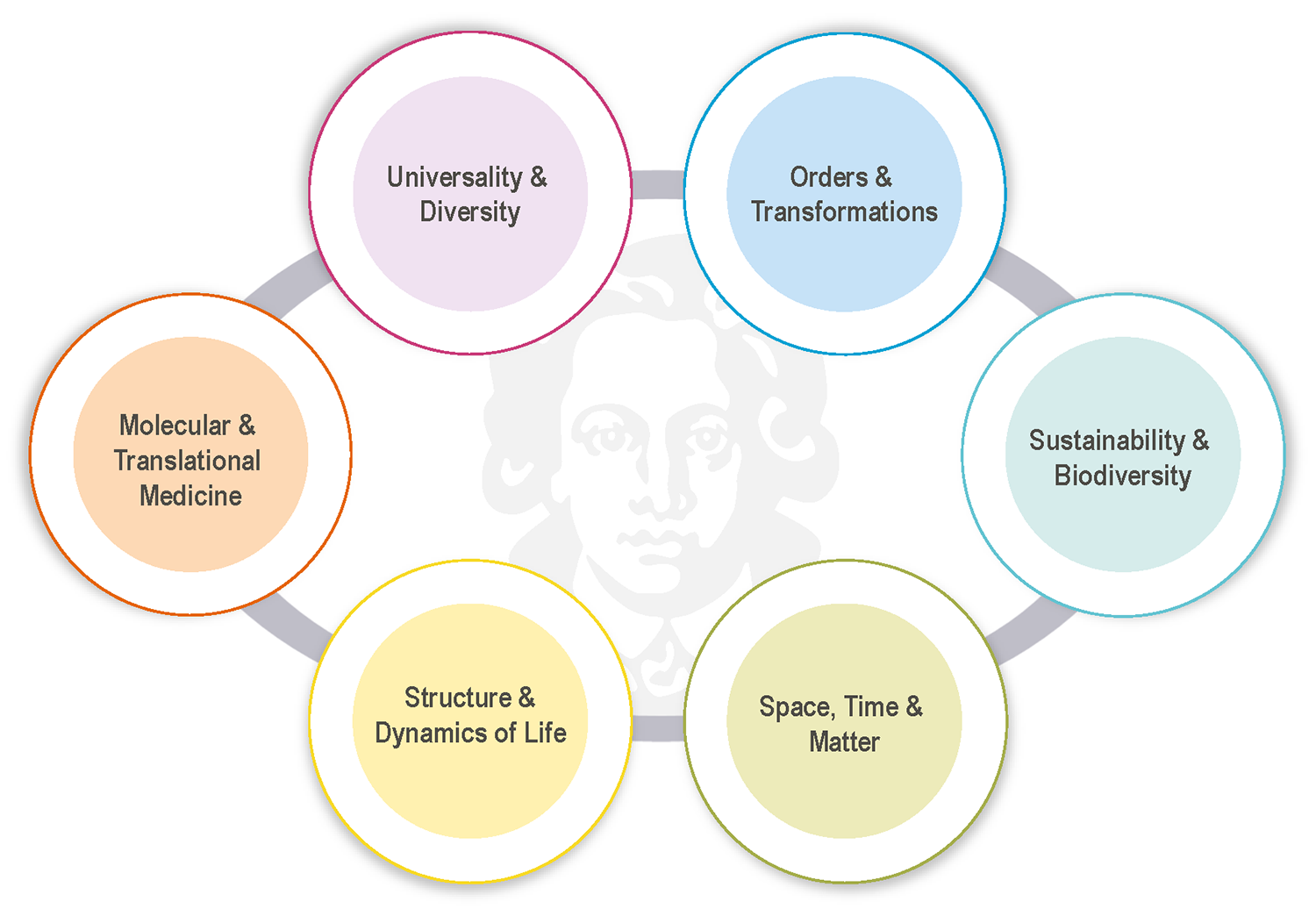
Goethe University is home to major established Research Networks and Clusters that further the development, application, reflection and transfer of cutting-edge computational methods.
- Cardio – Pulmonary Institute (CPI)
- ConTrust: Trust in Conflict – Political Life under Conditions of Uncertainty
- Dynamics of Religion: Processes of Comprehension, Misapprehension, and Mutual Understanding (DynRel)
- ELEMENTS – Exploring the Universe from microscopic to macroscopic scales
- EMTHERA – Emerging Therapeutic Strategies against Infections, Inflammation and Impaired Immune Mechanisms
- RobustNature – Robustness and Resilience of Nature‐Society Systems in the evolving Anthropocene
- SCALE – SubCellular Architecture of LifE. From Macromolecules to Complex Biological Systems
- TRiC – Targeting Resistance in Cancer


